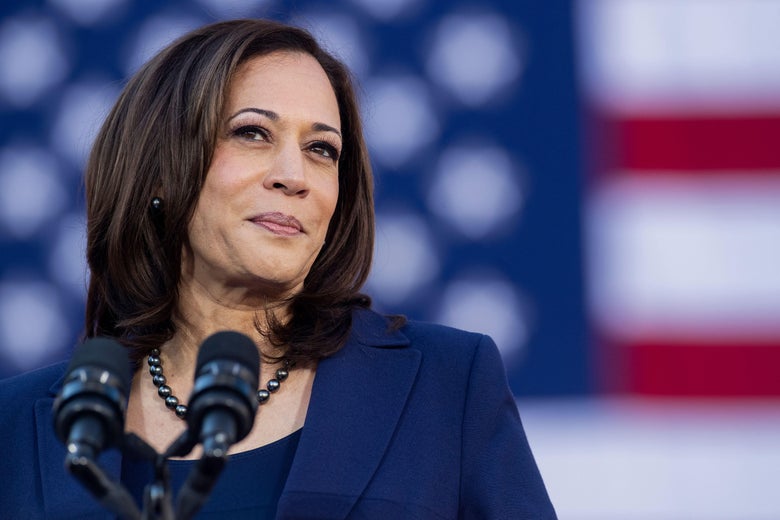
Black women don't get these gigs.
On Tuesday, former Vice President Joe Biden, the Democratic nominee for president, selected Sen. Kamala Harris to be his running mate. The significance of this decision cannot be understated. Harris is the first Black woman, the first Asian woman, and the first graduate of a historically Black university to be selected as the running mate for a major-party candidate. And, should the ticket be successful in November, she'd be the first woman with such a multifaceted identity to be elected vice president.
Harris was born in 1964, the year Patsy Mink became the first Asian American woman elected to Congress. It was four more years before Shirley Chisholm joined Mink there, as the first Black woman. Chisholm would run for president in 1972-"My presence before you now symbolizes a new era in American political history," she said at her campaign announcement -but no Black woman followed her until Carol Moseley Braun 32 years later. And no one was picking Black women to run for vice president.
Women who were white won vice-presidential nominations and a presidential nomination; a Black man was elected president. Yet Black women, the backbone of the Democratic Party electorate, have been excluded from high-level tickets, because neither part of our dual identities is rooted in privilege. White women were still white; a Black man is still a man.
But now Harris-still only the third Black woman to have run for a major-party presidential nomination-is officially the vice-presidential pick. She emerged, moreover, from a selection process where Biden was widely understood to be choosing from among a field of Black women. It's a remarkable shift in our electoral politics, and one to which many women of color, Black ones in particular, have been looking forward.
As I watch the reactions unfold online, I wonder if the undebatable historical significance of this moment will overshadow the litany of concerns about Harris' political record -and her reluctance to fully address them-or if the inverse will occur instead, and the criticisms will get lost in the moment. Neither option feels right, or as if it properly speaks to this occasion. "Firsts," while worthy of recognition, do not bear the totality of significance. Even so, as I wrestle with this announcement and my own political analysis of Harris, I keep circling back to a premise that seems a bit more simple than it is: Harris is a riveting choice who either makes people feel grounded in their politics or provokes visceral opposition.
In December, once she exited the presidential primary, I likened her record to " doing backflips down a football field." As she's gained national prominence for her deft attacks on the Trump administration and other opponents, that football stadium has become populated by her stans. The relentless tweeters of the KHive have been positioned on the offensive for months, readily tackling any criticism, perceived or genuine, against the senator and her record, as stan culture demands. And, as politics requires, the criticism keeps getting thrown regardless.
There will be political observers who zero in on Harris's wishy-washy or self-contradictory record, which includes statements she made about Biden during her own campaign, because they find it indicative of puzzling policy choices that don't center the well-being of marginalized folks. Others will see her nomination as belated recognition of the labor Black women have dedicated to a party that relies on Black women's turnout, but has only shown up superficially to hear us when it's time to cast a ballot. As more pieces are published, there will be critics who disingenuously claim that Harris is unqualified. Many will sidestep all valid critique to straight up dabble in misogynoir. And the stans will keep on stanning.
It's a messy moment in politics, but Black women will be the arbiters of this conversation. Well-founded feelings about Harris are complicated, which is why she elicits strong reactions. In the coverage of her presidential campaign, the political press had to expand its usual view, to account for the thoughts and responses of Black women who are not politicos or well-known pundits. I'm cautiously hopeful that what may emerge from this moment is an unhindered understanding that Black women, and other women of color, can be delighted by seeing ourselves reflected in the upper echelons of American politics, while we can also fiercely hold them accountable for lackluster decisions.
For more of Slate's news coverage, subscribe to What Next on Apple Podcasts or listen below.